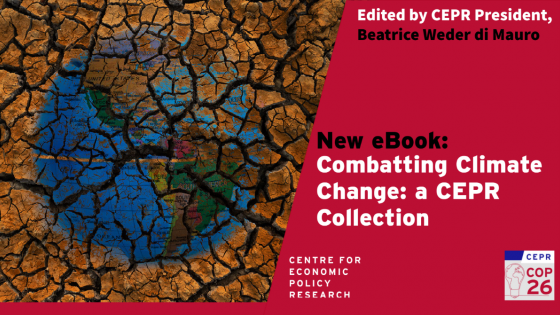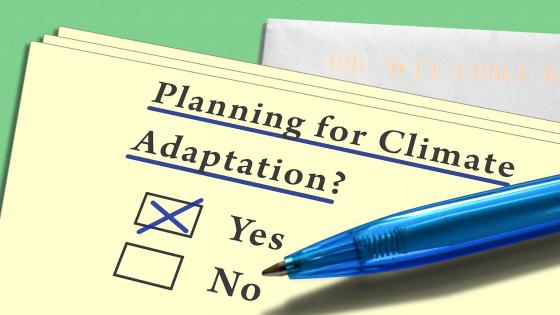Climate change is fast becoming the defining challenge of our generation and the most important determinant of the prospects for prosperity of future ones. Understanding the short- and long-term effects of climate change on the economy, migration and inequality, and how they will affect societies worldwide, is essential.
A new CEPR eBook provides a selection of solution-oriented research studies, first featured on CEPR’s policy platform VoxEU.org, which highlight key climate policy issues for governments going forward, as well as detailed analyses of the effectiveness of policies currently in place. The eBook also provides a fascinating insight into the evolution of economic research on climate change over the last decade, and starkly highlights the shift in urgency and appreciation of this daunting threat to humanity.
Edited by CEPR President Beatrice Weder di Mauro, this treasure trove is a collection of 45 VoxEU columns from leading economists on the economics of climate change, mostly published over the past 2-3 years. Chapters in the eBook discuss a broad range of issues, including carbon pricing, green finance, greening monetary policy, climate refugees and inequality linked to climate change. Several key takeaways emerge from the collection:
- The approach to carbon pricing has shifted since the Paris agreement of 2015, the debate has moved from a Pigouvian internalisation approach to carbon pricing (i.e. estimating the present value of the flow of marginal damages of one tonne of CO2) to a maximum quantity approach (i.e. estimating the optimal dynamic path for the shadow carbon price compatible with a fixed remaining carbon budget).
- The call to harness green finance for climate related investment is increasingly popular and the financial industry seems to be embracing ESG finance whole-heartedly, but the evidence of the articles on the impact of green finance is mixed. There is some evidence of impact on stock prices, bank lending conditions and bank credit flows but no overwhelming evidence that this is moving the needle.
- Measuring ESG criteria is a jungle: virtually hundreds of metrics, ratings, and standard setters are competing. Regulators have been trying to catch up by designing taxonomies and setting standards, which are themselves very complex. What is missing is a simple measure of carbon emissions in tonnes of CO2. The carbon budget in tonnes is absolute and limited, so tonnes are what matters, not carbon footprints relative to sales, or assets or competitors. Disclosing the absolute amount of CO2 emissions (scope 1) should be mandatory for every firm.
- Harnessing green monetary policy has been controversial. But, some of the same arguments made for pricing climate risk in financial intermediaries’ balance sheets also apply for the portfolios of central banks. “Market neutrality” is not a good benchmark for the allocation of central banks purchases since it cements the brown bias of today’s market shares.
- It is estimated that climate change might displace between 210 and 320 million people, mostly within their own countries. Massive international flows of climate refugees are unlikely however, except under generalised and persistent conflicts.
- There is a nasty nexus between climate change and debt. By redistributing special drawing rights (SDRs) towards the most vulnerable, recapitalising regional development banks with unused SDRs, and incorporating lending clauses in official lending, which would automatically suspend debt service following a natural disaster, could go some way towards breaking the climate–debt nexus.
- Carbon pricing is politically unpopular, lump-sum dividends to citizens could increase its political feasibility. Switching from ditching market-based emissions pricing, carbon taxing etc. in favour of regulatory approaches could be beneficial.
Economics has a key role to play in combatting climate change, and this eBook serves to inform policymakers on the costs, benefits, and trade-offs of climate policies, as well as to stimulate further research, since the answers to many pivotal questions, in particular those on global distributional issues, are still wide open.
You can also read a VoxEU column here.



